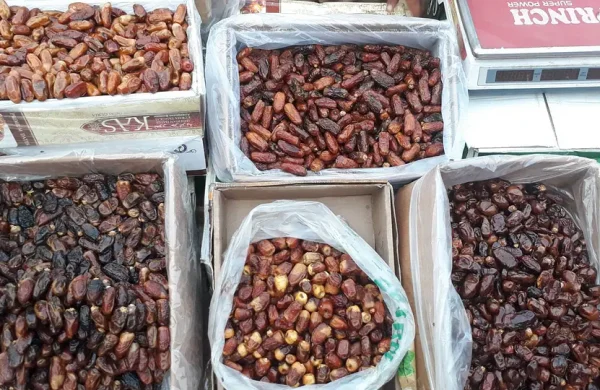Shortage of daily essentials ahead of Ramadan
- Update Time : Friday, November 22, 2024

TDS Desk
Ahead of the upcoming holy month of Ramadan, the import levels and stocks of some daily necessities are not in good shape. The import and stock of certain products, including edible oil, sugar, and onions, are lower than last year.
Additionally, the letters of credit (LCs) required to meet the shortage of these products are not being opened. However, there is an increased demand for these products during Ramadan compared to regular times.
Concerned parties have stated that if initiatives are not taken now, there could be a shortage of some products during the holy month of Ramadan, which starts in March.
This week, the Bangladesh Trade and Tariff Commission (BTTC) informed the Ministry of Commerce about these concerns.
After reviewing local demand, Ramadan-specific demand, local production, annual imports, monthly demand, supply, and price conditions, the BTTC sent a report to the Ministry of Commerce. The report compares the import, LC, and stock situation for 2024 with the same period in 2023 (July–October).
Analysis of the BTTC report reveals the largest shortage this year is in raw sugar. Compared to the July–October period last year, 367,591 tonnes less sugar was imported during the same period this year.
Similarly, 240,580 tonnes fewer onions were imported and LC openings for onions decreased by 194,142 tonnes. Palm oil imports also dropped by 174,386 tonnes, with LC openings for palm oil falling by 77,930 tonnes.
Additionally, fewer LCs were opened for chickpeas, dates, and refined sugar. The actual import of soybean seeds was lower as well. However, 88,000 tonnes of raw sugar and 8,000 tonnes more LCs were opened for soybean seeds compared to the previous year.
The BTTC report stated that the LC for all products, except soybean seeds, lentils, and raw sugar, has been opened less this time.
Meanwhile, the prices of both refined and unrefined sugar have decreased by 21 per cent in the global market over the past year. However, domestic market prices have remained unchanged, meaning they have not decreased.
Market analysts suggest that if LCs are opened less, imports will decrease, leading to a supply shortage, which will, in turn, impact prices.
Therefore, the government should proactively address the situation by considering the import and stock situation.
In response, the government has reduced customs duties and taxes on the import of onions, edible oil, and sugar to help stabilise prices, as the costs of some daily essentials have risen in the market recently.
Additionally, customs duties and taxes have been reduced on rice, eggs, and potatoes. There are also no customs duties or taxes on the import of lentils and chickpeas. The BTTC report highlights these government measures as well.
Commerce Adviser Sheikh Bashiruddin discussed the supply situation of daily essentials after inaugurating an affordable potato sale programme at Karwan Bazar on Wednesday, organized by the government-run Trading Corporation of Bangladesh (TCB).
He mentioned that consumers have started to feel relief for some products, and if the supply of goods in the market is further increased, stability in commodity prices is expected soon.
The BTTC is in favour of keeping bank interest rates low for imports of edible oil, sugar, lentils, chickpeas, onions, and dates. The organization has recommended that the government issue instructions in this regard.
It also suggested that the Ministry of Commerce meet with major importers of these products and urge them to increase the number of LCs opened.
Additionally, the BTTC has recommended that the Ministry of Power, Energy, and Mineral Resources ensure an uninterrupted supply of electricity and gas to edible oil, sugar, and lentil mills. The organisation also called on the National Board of Revenue (NBR) to ensure that customs stations release these products on a priority basis.
The BTTC further recommended that the NBR instruct customs stations to determine the actual dutiable price, simplifying customs duties and taking into account the world market price of food products, including dates.
The organisation also suggested requesting the Public Safety Department, the Ministry of Shipping, and the Road and Highways and Bridges Division to ensure the smooth transportation of these products.
Moreover, the BTTC recommended that the Department of Agricultural Marketing, the Directorate of National Consumers’ Right Protection, district and upazila administrations, and city corporations strengthen market surveillance systems.
Commerce Secretary Md Selim Uddin told this correspondent, “We have taken steps to implement all the recommendations of the BTTC. We have already sent letters to the relevant ministries and departments in this regard. However, no action has been taken yet regarding the reduction of interest rates.”
When asked why nothing has been done about reducing the interest rate, the Commerce Secretary explained, “So far, no demand has been received from the business community in this regard. If such a demand is made, we will recommend it to the Finance Division of the Ministry of Finance or Bangladesh Bank.”















